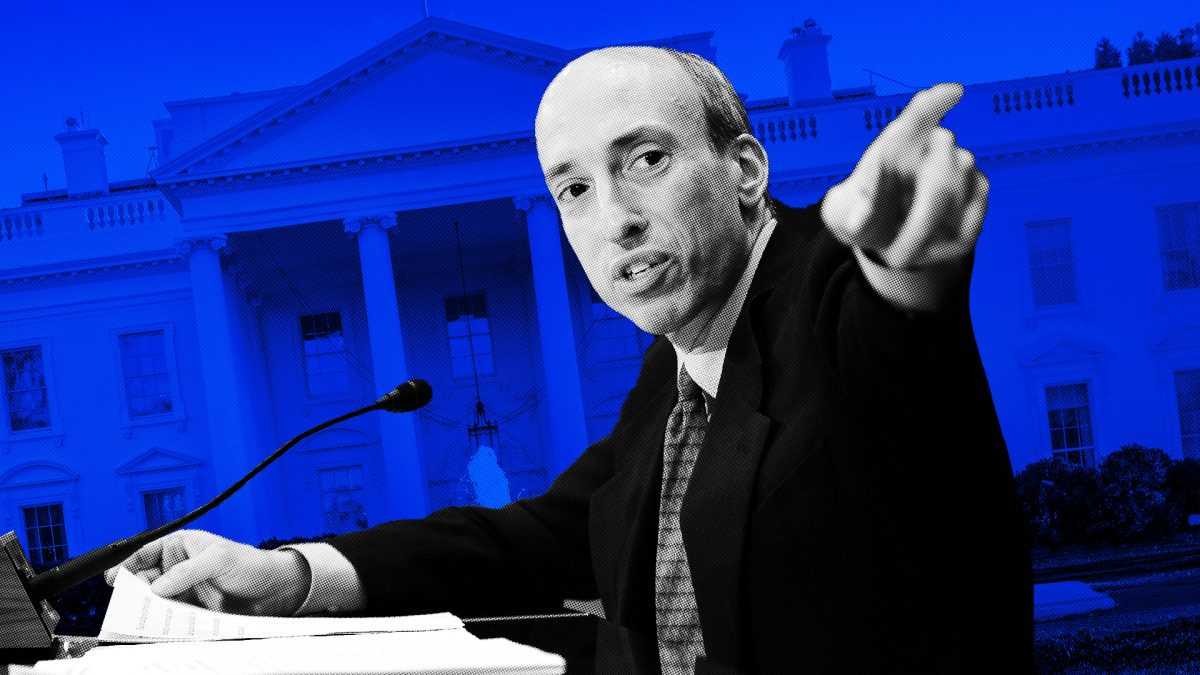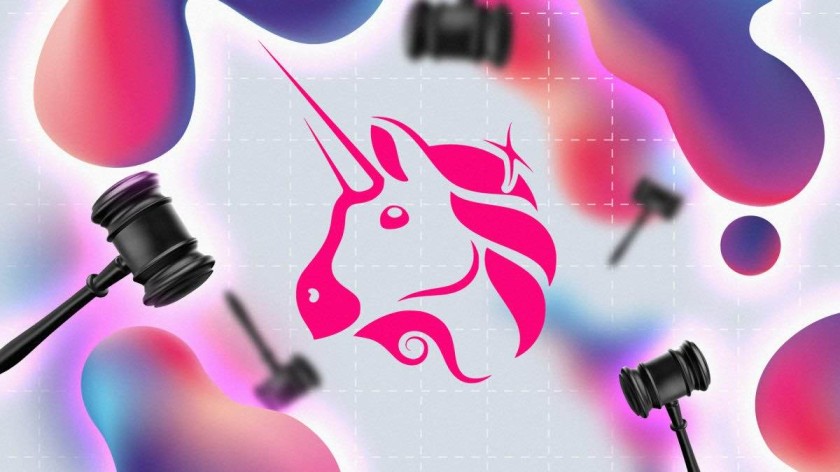Navigating the Complex Regulatory Framework for Uniswap in the US
Understanding the regulatory framework for Uniswap in the US is crucial for anyone involved in decentralized finance. This article will explore how US regulatory bodies like the SEC and CFTC approach Uniswap, the key legal challenges it faces, and what this means for the future of DeFi.
Key Takeaways
- Uniswap operates as a decentralized protocol, presenting unique regulatory challenges compared to centralized exchanges, as it disputes the SEC’s classification of its traded tokens as unregistered securities.
- The regulatory landscape for digital assets in the US involves multiple federal agencies, such as the SEC and CFTC, each asserting different jurisdictions over asset classifications, impacting how platforms like Uniswap operate.
- There is a pressing need for clear and consistent regulatory frameworks tailored to decentralized finance, as current ambiguity threatens innovation and compliance, prompting industry stakeholders to advocate for legislative changes.
Navigating the Complex Regulatory Framework for Uniswap in the US

Uniswap Labs has been at the center of a regulatory storm, with its decentralized nature complicating the application of traditional financial regulations. Unlike centralized exchanges, Uniswap operates as a protocol that facilitates peer-to-peer transactions without intermediary oversight. This model presents unique challenges in the regulatory landscape, where existing laws are primarily designed for centralized entities. Uniswap Labs contends that the tokens traded on its platform are primarily digital file formats and not inherently securities, challenging the SEC’s characterization of their protocol as an unregistered securities exchange.
These arguments underscore the broader debate about the classification of digital assets and the definition of exchanges. Traditional financial regulations are ill-equipped to handle the nuances of decentralized finance, where governance and control are spread across a community of users rather than a single entity. Uniswap Labs further contends that its operations do not qualify as a securities exchange under existing laws, emphasizing that its protocol functions as general-purpose software rather than a platform for trading securities.
Uniswap’s complex regulatory situation underscores the need for a clear and stable framework that addresses the unique characteristics of decentralized finance. As regulatory bodies like the SEC and CFTC continue to scrutinize Uniswap, the platform’s arguments and compliance strategies will play a crucial role in shaping the future of DeFi regulation in the US. Understanding these dynamics is essential for anyone involved in the digital asset space, from developers to investors.
Introduction
Decentralized finance (DeFi) platforms like Uniswap operate in a complex and often ambiguous regulatory environment. Each jurisdiction has its own approach to regulating these innovative financial systems, leading to a patchwork of rules and guidelines that can be challenging to navigate.
In the US, the regulatory landscape is particularly intricate, with various federal agencies asserting their authority over different aspects of the digital asset market. Understanding this landscape is crucial for the continued operation and development of DeFi applications, as compliance with local laws is vital for maintaining platform stability and trust.
The evolving digital asset industry underscores the pressing need for a clear and consistent regulatory framework.
Understanding Uniswap’s Legal Status

Uniswap’s legal status is a contentious issue, primarily because of its decentralized nature. Unlike traditional financial institutions, Uniswap operates as a decentralized protocol, meaning that it is not controlled by any single entity. This decentralization complicates the application of traditional financial regulations, which are typically designed for centralized organizations. Uniswap Labs contends that the tokens traded on its platform are primarily digital file formats and not inherently securities, challenging the SEC’s characterization of their uniswap protocol as an unregistered securities exchange.
Furthermore, Uniswap Labs contends that its operations do not qualify as a securities exchange under existing laws. The platform emphasizes that its protocol functions as general-purpose software rather than a platform for trading securities. This distinction is crucial, as it influences the regulatory scrutiny that Uniswap faces.
The debate over Uniswap’s legal status showcases the broader challenges of regulating decentralized finance, where traditional definitions and frameworks often fall short.
Securities vs. Commodities
One of the central debates surrounding Uniswap is whether the assets traded on its platform are securities or commodities. Uniswap asserts that the majority of assets traded on its platform, including stablecoins and utility tokens, do not qualify as securities. This argument is critical because the classification of these assets determines the regulatory framework that applies to them. The SEC’s case against Ripple Labs has raised significant questions about the status of cryptocurrencies, which could impact Uniswap’s operations.
The classification of digital assets like ether remains uncertain. If ether were deemed a security, it would significantly impact firms using the Ethereum blockchain, including Uniswap. This uncertainty underscores the need for clear guidelines on the classification of digital assets, as the current ambiguity creates challenges for compliance and innovation.
Uniswap argues that it operates outside the SEC’s jurisdiction because it does not oversee non-security assets like Bitcoin and Ether. However, the ongoing debates and legal actions indicate that the regulatory landscape is far from settled. As the digital asset market continues to grow, resolving these classification issues will be critical for the development of a stable and supportive regulatory framework.
Definition of an Exchange
Uniswap’s decentralized nature also raises questions about its classification as an exchange. Unlike traditional exchanges that manage asset liquidity directly, Uniswap operates as an automated market maker, where liquidity is provided by users through liquidity pools. This model contrasts sharply with centralized exchanges, which have a more direct role in managing transactions and asset liquidity.
Uniswap argues that it does not meet the SEC’s definition of a broker or exchange because transactions on its platform are not classified as securities transactions. This distinction is crucial in determining the regulatory obligations that apply to Uniswap.
As regulatory bodies continue to scrutinize decentralized exchanges, the definitions and frameworks used to classify these platforms will play a significant role in shaping their operations and compliance strategies.
Federal Regulatory Agencies and Their Roles
Various federal regulatory agencies play critical roles in overseeing the digital asset markets, each with distinct responsibilities. The federal regulatory agency SEC, CFTC, and FinCEN are among the primary agencies involved, with each asserting its authority over different aspects of the digital asset ecosystem.
An overview of these agencies and their roles sets the stage for a detailed discussion of their actions and impacts on Uniswap.
Securities and Exchange Commission (SEC)

The SEC claims jurisdiction over digital assets that meet the definition of securities under federal law. This includes assets that are deemed Investment Contract, which are subject to federal securities laws. The SEC’s classification of ether remains ambiguous, impacting its regulatory treatment and creating uncertainty for platforms like Uniswap that rely on the Ethereum blockchain.
The SEC has indicated that it may require Congress to create new regulations for digital tokens, as it lacks jurisdiction over those not classified as securities. This ongoing ambiguity underscores the need for clearer guidelines to ensure compliance and foster innovation in the digital asset space.
The SEC’s continued assertion of enforcement authority arising will significantly impact platforms like Uniswap, influencing their operational and compliance strategies.
Commodity Futures Trading Commission (CFTC)
The CFTC asserts jurisdiction over certain digital assets by classifying them as commodities under the Commodity Exchange Act. This allows the CFTC to regulate futures and options related to these assets, as well as retail commodity transactions. The CFTC’s enforcement actions against Uniswap highlight the regulatory scrutiny on decentralized platforms and the necessity for compliance with registration regulations.
The CFTC’s role in regulating digital assets is distinct yet equally significant compared to the SEC’s. By classifying certain digital assets as commodities, the CFTC can enforce compliance with registration and trading requirements, impacting how platforms like Uniswap operate. This dual regulatory environment adds complexity to the compliance landscape for decentralized finance platforms.
Other Relevant Agencies
In addition to the SEC and CFTC, other regulatory agencies like the Financial Crimes Enforcement Network (FinCEN) and the Financial Industry Regulatory Authority (FINRA) play significant roles in shaping the regulatory framework for digital asset activities. These agencies focus on issues such as anti-money laundering (AML) compliance and the oversight of broker-dealers.
Their influence can lead to significant changes in how decentralized finance platforms like Uniswap comply with evolving regulations.
Key Legal Actions Impacting Uniswap

Key legal actions have played a pivotal role in shaping the regulatory landscape for Uniswap. The SEC and CFTC have both taken enforcement actions against Uniswap Labs, highlighting the regulatory scrutiny on decentralized finance platforms. These actions underscore the importance of compliance and the challenges Uniswap faces in navigating the complex regulatory environment.
SEC v. Ripple Labs
The SEC’s case against Ripple Labs has significant implications for Uniswap. The SEC argues that Ripple’s XRP token is a security, applying existing securities laws to protect investors. This classification raises questions about the status of other cryptocurrencies and digital assets, including those traded on Uniswap. The outcome of this case could influence how Uniswap manages its token listings and compliance strategies.
The Ripple case highlights the broader regulatory scrutiny on the crypto industry, with potential impacts on platforms like Uniswap. As the SEC continues to pursue enforcement actions against entities involved in unregistered offerings of digital assets, the need for clear and consistent regulations becomes increasingly apparent. This case serves as a critical example of the challenges and uncertainties facing the DeFi sector.
CFTC Enforcement Actions
The CFTC’s enforcement actions against Uniswap have focused on regulatory violations related to retail commodity transactions. The CFTC’s charges highlighted issues with purchaser eligibility and delivery timelines for commodities, underscoring the importance of compliance with registration regulations.
These actions emphasize the necessity for decentralized finance platforms to adhere to regulatory requirements, even as they operate in a rapidly evolving and often ambiguous legal landscape.
The CFTC’s scrutiny of Uniswap reflects broader concerns about the regulation of digital assets and the need for clearer guidelines to ensure compliance and protect market participants.
SEC v. Telegram
The SEC v. Telegram case provides another critical precedent for Uniswap. The court ruled that Telegram’s initial coin offering (ICO) constituted an unregistered securities offering, emphasizing the importance of regulatory compliance in token sales. This ruling showcases the potential risks and challenges Uniswap faces in navigating its compliance strategy.
The precedent set by this case underscores the need for decentralized finance platforms to carefully consider their token offerings and regulatory obligations. As the SEC continues to scrutinize unregistered securities offerings, platforms like Uniswap must navigate an increasingly complex regulatory environment to avoid similar legal challenges.
Uniswap’s Defense and Compliance Strategies

Uniswap has developed a range of defense and compliance strategies to address the regulatory challenges it faces. These strategies include decentralized governance, proactive measures to engage with regulators, and robust legal arguments to defend its operations.
As regulatory scrutiny intensifies, Uniswap’s efforts to comply with existing laws and demonstrate its commitment to transparency and security will be crucial in shaping its future.
Decentralized Governance
Uniswap’s decentralized governance model is a key aspect of its defense strategy. The platform operates independently, governed by a community of token holders, which distinguishes it from centralized exchanges. This decentralized governance limits the control that any one entity can exert over the platform, reinforcing its compliance with regulatory requirements.
Empowering a community of token holders to govern the platform minimizes centralized control risks and enhances resilience against regulatory scrutiny. This decentralized nature is a defining feature of Uniswap’s compliance strategy, as it aligns with the broader principles of decentralized finance and supports the platform’s commitment to transparency and security, including community and utility tokens.
Proactive Measures
Uniswap has taken proactive measures to enhance transparency and security, demonstrating its commitment to compliance with existing regulations. These measures include engaging in dialogues with regulatory bodies to address potential concerns and implementing policies to protect users and investors.
Active engagement with regulators and the implementation of transparency measures aim to build trust and credibility in the digital asset related activities space. These steps are crucial for navigating the complex regulatory landscape and ensuring the platform’s long-term sustainability.
Legal Arguments
Uniswap has crafted robust legal arguments to defend its operations against claims of being an unregistered securities exchange. The platform received a Wells notice outlining potential enforcement actions, focusing on Uniswap acting as an unregistered securities broker and exchange. Uniswap argues that the tokens traded on its platform are digital file formats and not intrinsically securities, challenging the SEC’s jurisdiction over its operations.
These legal arguments highlight the broader debate about the classification of digital assets and the regulatory frameworks that should apply to decentralized finance platforms. Challenging the SEC’s position, Uniswap aims to define a clearer regulatory path that supports innovation while ensuring compliance with existing laws.
The Need for Regulatory Clarity
The regulatory environment surrounding decentralized finance (DeFi) is characterized by significant uncertainty, complicating compliance for platforms like Uniswap. Effective regulation is essential to safeguard consumer interests, enhance trust in these evolving technologies, and foster innovation in the DeFi space.
Legal actions against Uniswap reflect broader regulatory scrutiny and underscore the critical need for clear and stable regulations that balance the interests of market participants and support the sustainable growth of digital assets.
Calls from Industry Stakeholders
Industry stakeholders and digital asset stakeholders are increasingly advocating for regulations that address the unique characteristics of decentralized finance. There is a growing consensus in the DeFi sector for the establishment of comprehensive and precise regulatory frameworks that protect consumer interests while supporting innovation. Stakeholders emphasize the need for collaborative efforts between regulators and the DeFi industry to address existing challenges and provide clear definitions for digital assets.
The SEC v. Telegram case serves as a critical example of regulatory scrutiny surrounding unregistered securities offerings, which is pertinent to Uniswap’s operations. Uniswap contends that the SEC lacks jurisdiction over cryptocurrencies like Bitcoin and Ether, which are primarily traded on its platform, emphasizing the need for Congressional action to create effective regulations for the crypto industry.
Potential Legislative Changes
Legislative changes are essential to provide the clarity needed for the DeFi sector to thrive. Industry experts argue for the establishment of clear guidelines that foster innovation while ensuring consumer protection. Future legislative measures may focus on creating a balanced approach that encourages DeFi growth while mitigating risks, including clearer definitions and classifications for digital assets.
Legislative proposals in the DeFi sector include guidelines for token classifications and regulatory oversight to ensure compliance. Uniswap argues that the SEC’s authority is limited to overseeing securities, requiring Congressional action for comprehensive regulation of the crypto industry.
These legislative changes are crucial for providing the regulatory clarity needed to support the sustainable development of decentralized finance platforms.
Implications for Market Participants
The implications of regulatory actions for market participants in the DeFi space are significant. Understanding these implications is vital for users and developers to navigate potential risks and opportunities. Regulatory scrutiny highlights the necessity for compliance and the potential impacts on liquidity and pricing behaviors across the digital asset sector.
Impact on Investors
Regulatory scrutiny can lead to significant risks for investors, including exposure to fraud and market manipulation. Increased regulatory oversight may lead to heightened risks for investors as firms face expanding examinations related to ethics and investor protections. The lack of regulation in digital assets has resulted in frequent theft and exploitation of investors, underscoring the need for clear and effective regulatory frameworks.
A coherent regulatory framework could enhance the credibility of the DeFi sector, attracting more institutional investment and providing a safer environment for retail investors. As regulations evolve, investors must stay informed about the potential risks and benefits associated with digital asset investments.
Effects on Innovation
Increased regulatory pressure may hinder innovation by creating uncertainty for developers in the DeFi sector. Stricter regulations can stifle creativity and slow down the development of new technologies, as developers may hesitate to innovate due to compliance concerns. The regulatory environment must strike a balance between protecting consumers and fostering responsible innovation.
Regulatory clarity could potentially foster innovation by establishing a safer environment for investment and development in digital assets. Clear guidelines and definitions can provide the stability needed for developers to create new financial products and services, supporting the growth and evolution of the DeFi sector.
Summary
Navigating the complex regulatory framework for Uniswap in the US presents significant challenges, but also opportunities for growth and innovation. Understanding Uniswap’s legal status, the roles of federal regulatory agencies, and the implications of key legal actions is crucial for market participants. As the DeFi sector continues to evolve, the need for clear and stable regulations becomes ever more pressing. By fostering a collaborative approach between regulators and the industry, we can create a regulatory environment that supports innovation while ensuring compliance and protecting consumer interests.
Frequently Asked Questions
Why does Uniswap face unique regulatory challenges?
Uniswap faces unique regulatory challenges due to its decentralized structure, which complicates traditional financial regulatory frameworks and makes classification difficult under existing laws.
What are the primary regulatory agencies involved in overseeing Uniswap?
The primary regulatory agencies overseeing Uniswap are the SEC, CFTC, and FinCEN, each responsible for various aspects of the digital asset market. Their involvement highlights the importance of compliance in the evolving landscape of decentralized finance.
How has the SEC v. Ripple Labs case impacted Uniswap?
The SEC v. Ripple Labs case has significantly impacted Uniswap by prompting it to reconsider its token listings and compliance strategies due to the evolving classification of cryptocurrencies as securities. This response reflects a broader shift in the regulatory landscape affecting decentralized exchanges.
What proactive measures has Uniswap taken to ensure compliance?
Uniswap has proactively engaged with regulatory bodies to improve transparency, implemented security measures, and created strong legal arguments to uphold its compliance efforts.
Why is regulatory clarity important for the DeFi sector?
Regulatory clarity is crucial for the DeFi sector as it protects consumer interests, builds trust, and promotes innovation. Without clear guidelines, the potential for growth and adoption may be hindered.

